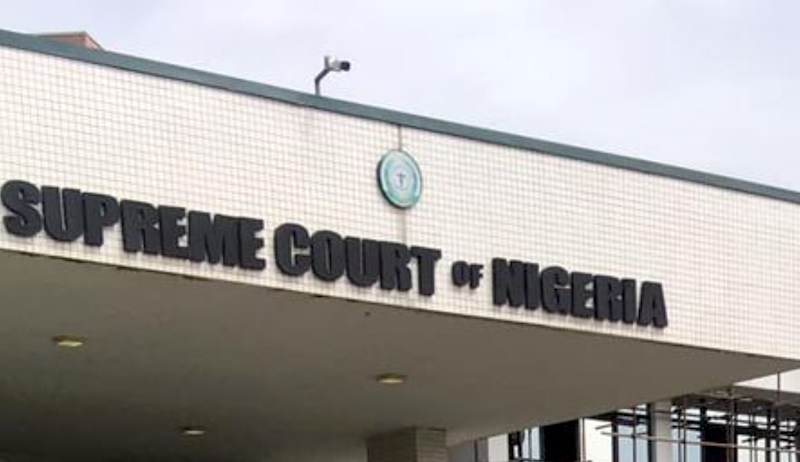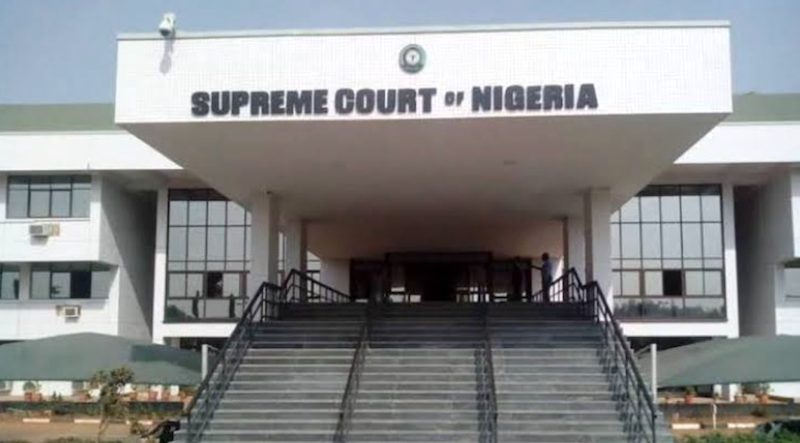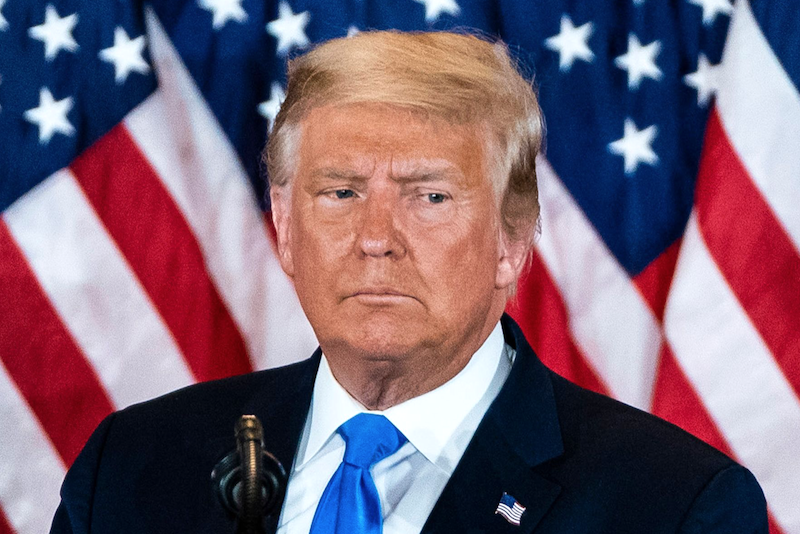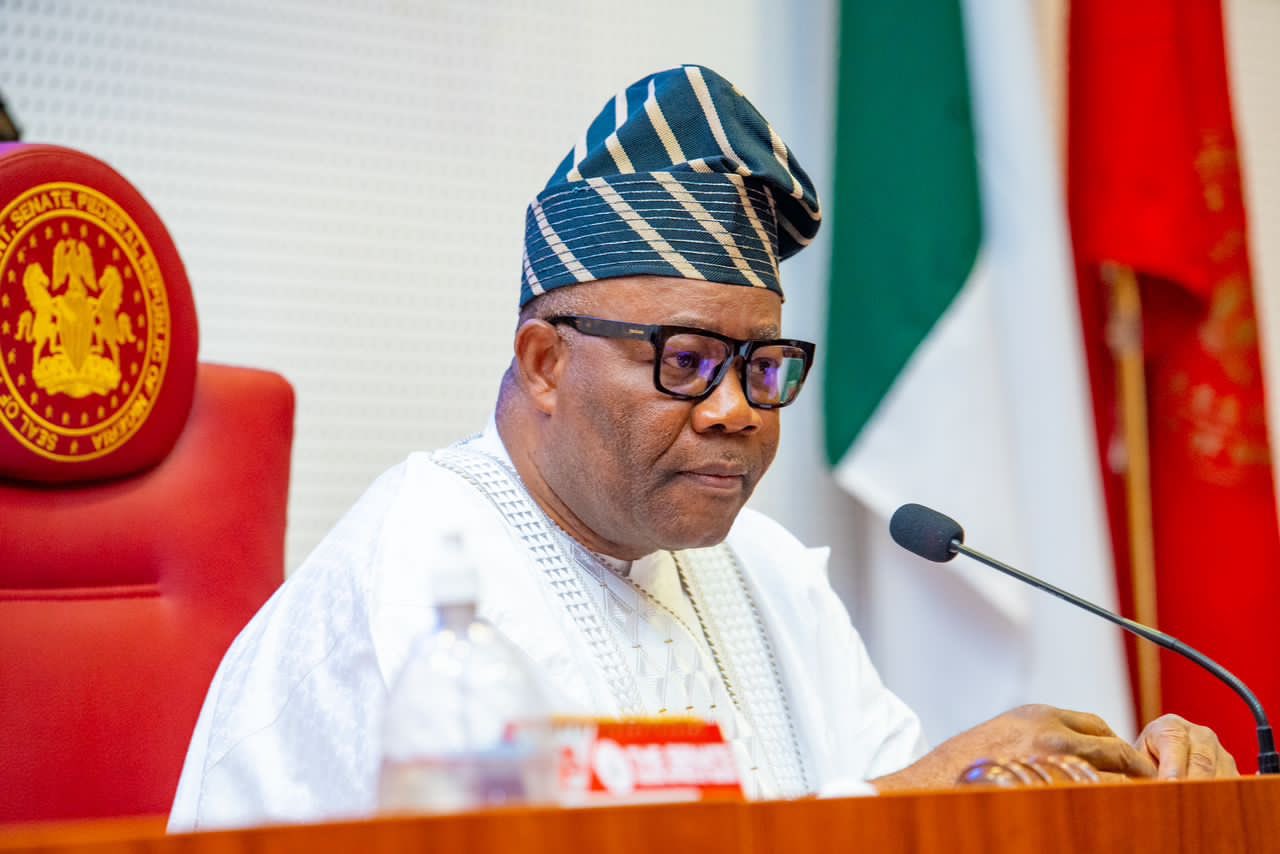The Supreme Court, on Wednesday, restrained Chief Edozie Njoku from parading himself as national chairman, All Progressives Grand Alliance (APGA).
A five-member panel of justices, led by Justice Stephen Adah, affirmed the emergence of Sly Ezeokenwa as the authentic national chairman of APGA.
The apex court, in two unanimous judgments, held that Njoku was wrongly laying claim to the party’s chairmanship position.
Justice Adah held that the earlier judgment on the appeal marked: SC/CV/687/2021, delivered on Oct. 14, 2021, which was corrected on March 24, 2023, and on which Njoku purportedly paraded to lay claim to APGA leadership, did not confer on him any enforceable rights.
The judge, who read the lead judgment, held that in the 2021 judgment, only declaratory reliefs were granted, which were not executory.
He also held that there was no order or orders in the 2021 judgment to be executed.
Justice Adah noted that in the earlier judgment, the Supreme Court particularly held that the issue of party’s leadership or who becomes the chairman of a political party was internal affairs of a political party and was not justiciable.
He further held that it was wrong for Njoku to have gone before the lower court to seek to enforce a judgment that had nothing to be enforced as no executory reliefs were granted.
Justice Adah, who urged judges of the lower courts to be cautious, held that the judges of the trial court and the Court of Appeal, who declared Njoku chairman of APGA were wrong to have heard the suit by Njoku.
He proceeded to set aside the judgment delivered by the Court of Appeal in Abuja on June 28, 2024, affirming the judgment of the High Court of the Federal Capital Territory (FCT), which had declared Njoku chairman of APGA.
The judgment in both appeals were applied to the third appeal, relating to the same issue of APGA leadership.
The apex court, therefore, awarded N20 million on each appeal against two members of Njoku faction (who are listed as 1st and 2nd respondents), bringing the total cost awarded in the three appeals to N60 million.
The three appeals were marked: SC/CV/824/2024, APGA & another vs. Chief Victor Ike Oye & others; SC/CV/825/2024, Chief Victor Oye vs. Otunba Kamaru Lateef Ogidan & 2 others, and Chief Victor Ike Oye vs. Otunba Kamaru Lateef Ogidan & 2 others.
Justice James Omotosho of a Federal High Court in Abuja had, on Nov. 21, also restarted Njoku from parading himself as national chairman of APGA.
Reacting to the judgments, Ezeokenwa commended the judiciary for effectively putting an end to the leadership dispute in the party and affirming him and the Chairman.
He said that with its erudite judgments, given on Wednesday, the court had once again, proved that “it is indeed, the hope of the common man.”
“We should not always be saying bad things against the judiciary. Today, I am very proud of our judiciary as the last hope of the common man.
“Like I have always said, our judiciary will always come through to save our nation when the need arises.
“That is what it has done today with the erudite judgments delivered today by the Supreme Court concerning the leadership of our party.
“Like our lead counsel, Onyechi Ikpeazu, SAN said, what ought not to have taken place was created and has been dragged up to the Supreme Court.
‘It is unfortunate. Money has been expended and party’s structures destabilised just because of someone’s selfish and inordinate ambition.
“The judgments today have affirmed the convention that brought us to office and that we are in charge of the running of the party’s affairs.
“So, there is no longer speculation or doubt about the actual leadership of APGA. By the judgments, I, Barrister Sly Ezeokenwa has been affirmed as the Chairman of APGA,” he said.







